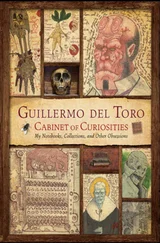Douglas Preston - The Cabinet of Curiosities
Здесь есть возможность читать онлайн «Douglas Preston - The Cabinet of Curiosities» весь текст электронной книги совершенно бесплатно (целиком полную версию без сокращений). В некоторых случаях можно слушать аудио, скачать через торрент в формате fb2 и присутствует краткое содержание. Жанр: Триллер, на английском языке. Описание произведения, (предисловие) а так же отзывы посетителей доступны на портале библиотеки ЛибКат.
- Название:The Cabinet of Curiosities
- Автор:
- Жанр:
- Год:неизвестен
- ISBN:нет данных
- Рейтинг книги:3 / 5. Голосов: 1
-
Избранное:Добавить в избранное
- Отзывы:
-
Ваша оценка:
- 60
- 1
- 2
- 3
- 4
- 5
The Cabinet of Curiosities: краткое содержание, описание и аннотация
Предлагаем к чтению аннотацию, описание, краткое содержание или предисловие (зависит от того, что написал сам автор книги «The Cabinet of Curiosities»). Если вы не нашли необходимую информацию о книге — напишите в комментариях, мы постараемся отыскать её.
The Cabinet of Curiosities — читать онлайн бесплатно полную книгу (весь текст) целиком
Ниже представлен текст книги, разбитый по страницам. Система сохранения места последней прочитанной страницы, позволяет с удобством читать онлайн бесплатно книгу «The Cabinet of Curiosities», без необходимости каждый раз заново искать на чём Вы остановились. Поставьте закладку, и сможете в любой момент перейти на страницу, на которой закончили чтение.
Интервал:
Закладка:
“That’s correct. My father didn’t press him on the subject. Shottum had always been a rather eccentric man, prone to opium and fits of melancholy, and my father suspected he might be mentally unstable. Then, one summer evening in 1881, Shottum’s Cabinet burned. It was such a fierce fire that they found only a few crumbling remains of Shottum’s bones. It was said the fire started on the first floor. A faulty gas lamp.” Another bitter noise.
“But you think otherwise?”
“My father became convinced that Leng started that fire.”
“Do you know why?”
The lady slowly shook her head. “He did not confide in me.”
After a moment, she continued. “It was around the time of the fire that Leng stopped attending the meetings at the Lyceum. He stopped coming to the New York Museum. My father lost touch with him. He seemed to disappear from scientific circles. Thirty years must have passed before he resurfaced.”
“When was this?”
“During the Great War. I was a little girl at the time. My father married late, you see. He received a letter from Leng. A very friendly letter, wishing to renew the acquaintance. My father refused. Leng persisted. He began coming to the Museum, attending my father’s lectures, spending time in the Museum’s archives. My father became disturbed, and after a while even frightened. He was so concerned I believe he even consulted certain fellow Lyceum members he was close to on the subject. James Henry Perceval and Dumont Burleigh are two names that come to mind. They came to the house more than once, shortly before the end.”
“I see.” Nora scribbled some more notes. “But you never met Leng?”
There was a pause. “I met him once. He came to our house late one night, with a specimen for my father, and was turned away at the door. He left the specimen behind. A graven artifact from the South Seas, of little value.”
“And?”
“My father disappeared the next day.”
“And you’re convinced it was Leng’s doing?”
“Yes.”
“How?”
The old lady patted her hair. Her sharp eyes fixed on hers. “My dear child, how could I possibly know that?”
“But why would Leng murder him?”
“I believe my father found out something about Leng.”
“Didn’t the Museum investigate?”
“No one had seen Leng in the Museum. No one had seen him visit my father. There was no proof of anything. Neither Perceval nor Burleigh spoke up. The Museum found it easier to smear my father’s name — to imply that he ran away for some unknown reason — than to investigate. I was just a girl at the time. When I grew older and demanded a reopening of the case, I had nothing to offer. I was rebuffed.”
“And your mother? Was she suspicious?”
“She was dead by that time.”
“What happened to Leng?”
“After his visit to my father, nobody ever saw or heard from him again.”
Nora took a breath. “What did Leng look like?”
Clara McFadden did not answer immediately. “I’ll never forget him,” she said at last. “Have you read Poe’s ‘Fall of the House of Usher’? There’s a description in the story that, when I came upon it, struck me terribly. It seemed to describe Leng precisely. It’s stayed with me to this day, I can still quote the odd line of it from memory: ‘a cadaverousness of complexion; an eye large, liquid, and very luminous… finely molded chin, speaking, in its want of prominence, of a want of moral energy.’ Leng had blond hair, blue eyes, an aquiline nose. Old-fashioned black coat, formally dressed.”
“That’s a very vivid description.”
“Leng was the kind of person who stayed with you long after he was gone. And yet, you know, it was his voice I remember most. It was low, resonant, strongly accented, with the peculiar quality of sounding like two people speaking in unison.”
The gloom that filled the parlor seemed inexplicably to deepen. Nora swallowed. She had already asked all the questions she had planned to. “Thank you very much for your time, Ms. McFadden,” she said as she rose.
“Why do you bring all this up now?” the old lady asked abruptly.
Nora realized that she must not have seen the newspaper article or heard anything about the recent copycat killings of the Surgeon. She wondered just what she should say. She looked about the room, dark, frozen in shadowy Victorian clutter. She did not want to be the one to upset this woman’s world.
“I’m researching the early cabinets of curiosities.”
The old lady transfixed her with a glittering eye. “An interesting subject, child. And perhaps a dangerous one.”
ELEVEN
SPECIAL AGENT PENDERGAST lay in the hospital bed, motionless save for his pale eyes. He watched Nora Kelly leave the room and close the door. He glanced over at the wall clock: nine P.M. precisely. A good time to begin.
He thought back over each word Nora had uttered during her visit, looking for any trivial fact or passing reference that he might have overlooked on first hearing. But there was nothing more.
Her visit to Peekskill had confirmed his darkest suspicions: Pendergast had long believed Leng killed Shottum and burned the cabinet. And he felt sure that McFadden’s disappearance was also at the hands of Leng. No doubt Shottum had challenged Leng shortly after placing his letter in the elephant’s-foot box. Leng had murdered him, and covered it up with the fire.
Yet the most pressing questions remained. Why had Leng chosen the cabinet as his base of operations? Why did he begin volunteering his services at the houses of industry a year before killing Shottum? And where did he relocate his laboratory after the cabinet burned?
In Pendergast’s experience, serial killers were messy: they were incautious, they left clues. But Leng was, of course, very different. He was not, strictly speaking, a serial killer. He had been remarkably clever. Leng had left a kind of negative imprint wherever he went; the man seemed defined by how little was known about him. There was more to be learned, but it was deeply hidden in the masses of information strewn about his hospital room. There was only one way to coax this information out. Research alone would not suffice.
And then there was the growing problem of his increasing lack of objectivity regarding this case, his growing emotional involvement. If he did not bring himself sharply under control, if he did not reassert his habitual discipline, he would fail. And he could not fail.
It was time to make his journey.
Pendergast’s gaze shifted to the massings of books, maps, and old periodicals that filled half a dozen surgical carts in his room. His eyes moved from surface to tottering surface. The single most important piece of paper lay on his bedside table: the plans for Shottum’s Cabinet. One last time, he picked it up and gazed at it, memorizing every detail. The seconds ticked on. He laid down the yellowing plat.
It was time. But first, something had to be done about the intolerable landscape of noise that surrounded him.
After his condition was upgraded from serious to stable, Pendergast had himself transferred from St. Luke’s — Roosevelt to Lenox Hill Hospital. The old facility on Lexington Avenue had the thickest walls of any building in the city, save for his own Dakota. Even here, however, he was assaulted by sounds: the bleat of the blood-oxygen meter above his bed; the gossiping voices at the nurses’ station; the hissings and beepings of the telemetry machines and ventilators; the adenoidal patient snoring in the adjacent room; the rumble of the forced-air ducts deep in the walls and ceiling. There was nothing he could do that would physically stop these sounds; yet they could be made to disappear through other means. It was a powerful mind game he had developed, an adaptation of Chongg Ran, an ancient Bhutanese Buddhist meditative practice.
Читать дальшеИнтервал:
Закладка:
Похожие книги на «The Cabinet of Curiosities»
Представляем Вашему вниманию похожие книги на «The Cabinet of Curiosities» списком для выбора. Мы отобрали схожую по названию и смыслу литературу в надежде предоставить читателям больше вариантов отыскать новые, интересные, ещё непрочитанные произведения.
Обсуждение, отзывы о книге «The Cabinet of Curiosities» и просто собственные мнения читателей. Оставьте ваши комментарии, напишите, что Вы думаете о произведении, его смысле или главных героях. Укажите что конкретно понравилось, а что нет, и почему Вы так считаете.










